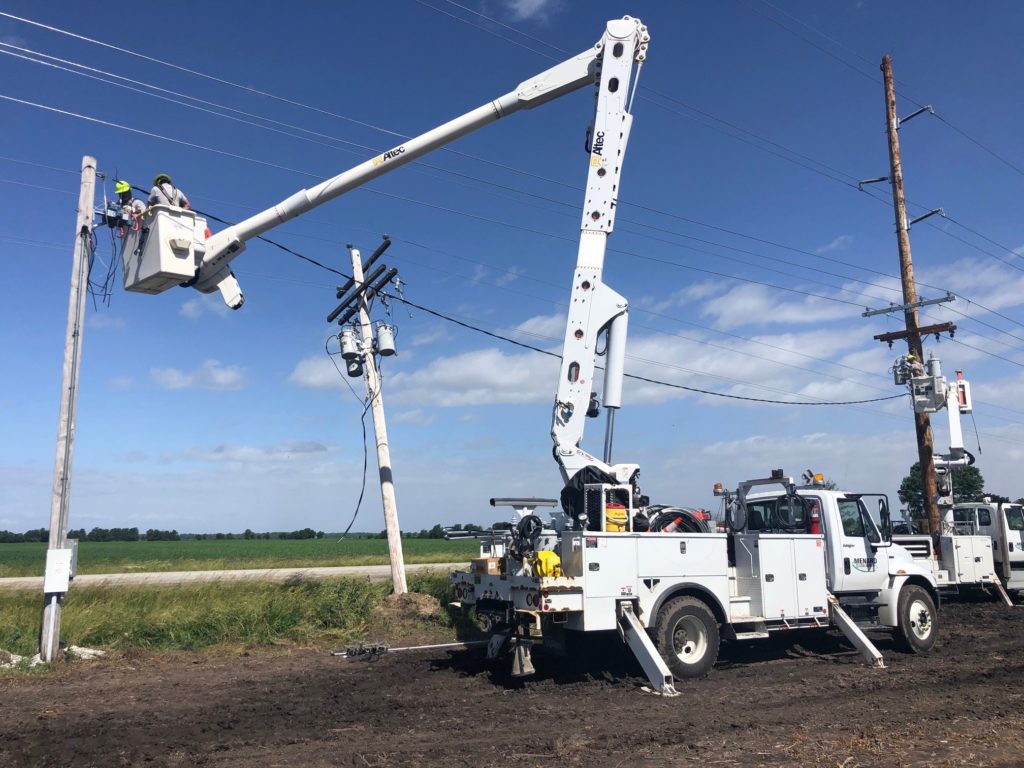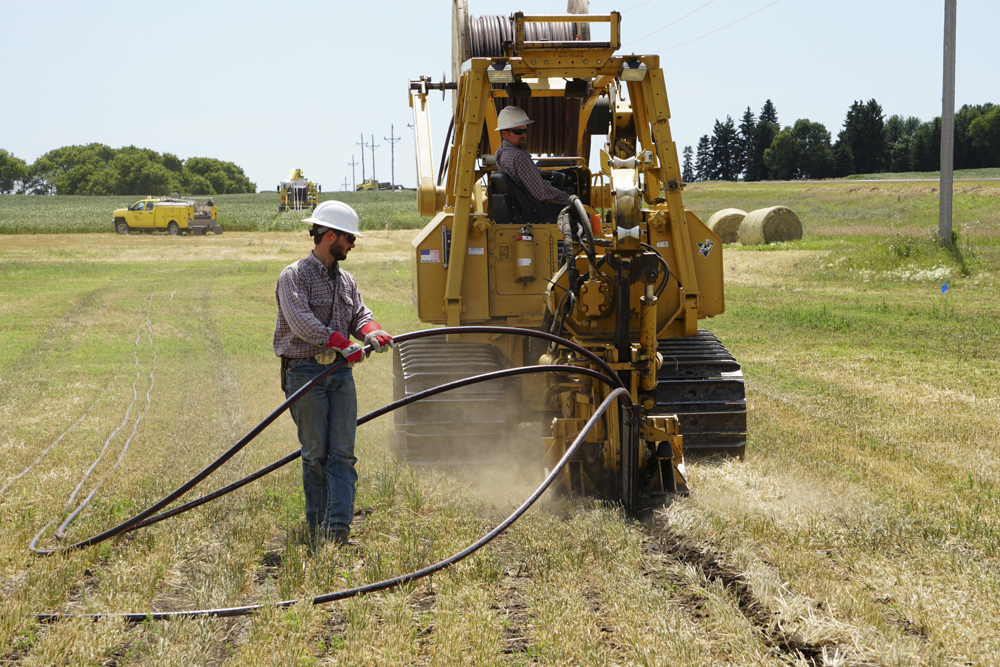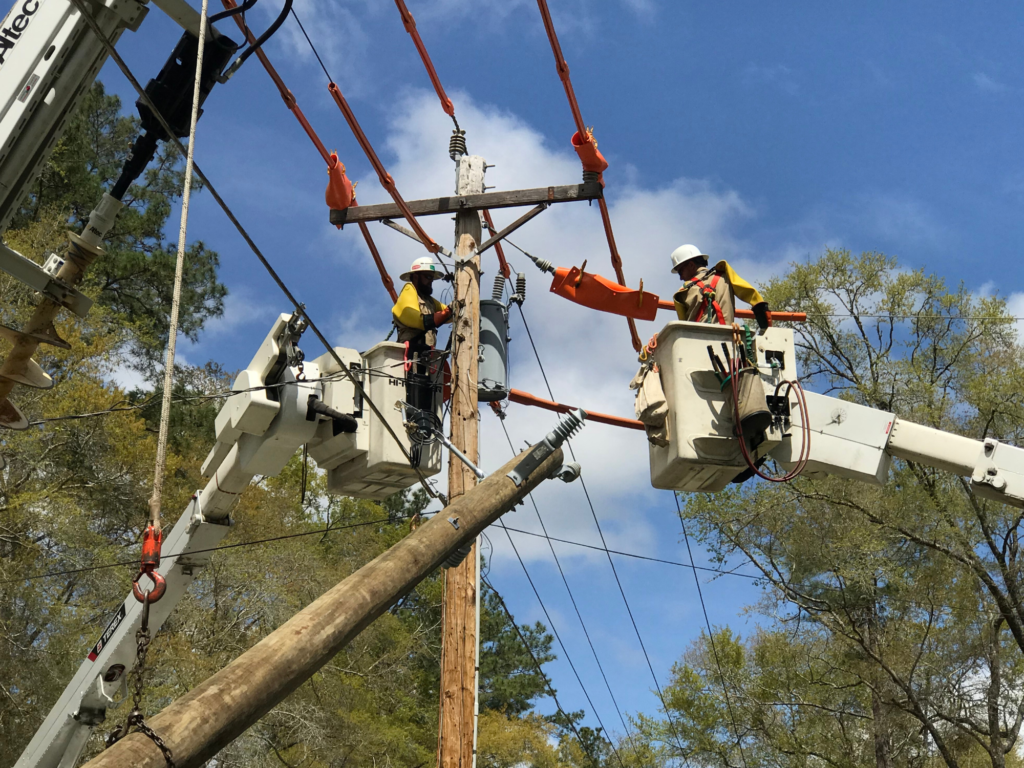
As the central Illinois economy begins to rebound from the COVID-19 pandemic, the last thing that Menard Electric Cooperative General Manager Alisha Anker wants to do is raise electric rates.
“People are just getting back to work as things are opening back up here,” she said. “If we had to go with a rate increase in 2021, that would be really ugly.”
But the Petersburg-based co-op may have little choice but to increase electric bills soon unless Congress passes legislation that would save it about $2.3 million in interest payments on $25.5 million in federal Rural Utilities Service loans. Like most co-ops, Menard used the loans for the construction and improvement of its system.
The Flexible Financing for Rural America Act would allow not-for-profit co-ops to reprice their RUS loans at today’s low interest rates—which they can’t do now without being hit with huge prepayment penalties. NRECA estimates that the legislation could save co-ops more than $10 billion nationwide. Co-ops would have 180 days after the bill’s enactment to apply for a rate adjustment.
Menard has already cut its budget, but it cannot continue to provide service to its 8,900 members at existing rates unless it gets some debt relief from Congress.
“I look forward to this bill passing,” said Anker, who has lobbied her congressional delegation to support the bipartisan legislation. “It could push off a rate increase for several years and help put the pandemic in the rearview mirror.”
Anker and other co-op leaders said the issue comes down to a matter of fairness.
“We’re not asking for special treatment,” said Randy Hauck, general manager and CEO of 12,500-member Verendrye Electric Cooperative in Velva, North Dakota. “We’re just asking to be able to do what every other business is able to do—and what homeowners are able to do when they refinance their mortgage.”

The co-op would use the $5 million to $10 million it would save by refinancing about $50 million in RUS loans to strengthen its infrastructure, Hauck said.
“Our plant is getting pretty old,” he said. “We would replace the parts built back in the ‘50s and ‘60s. The savings would make it possible for us to enhance the reliability, and maybe the capacity, of our system. And we could do it without raising rates.”
Kansas Electric Power Cooperative, a generation and transmission co-op in Topeka, will be able to hold down rates for the 16 distribution co-ops it serves if the RUS repricing bill passes, said CEO Suzanne Lane. That, in turn, will help stabilize rates for consumer-members down the line.
KEPCo has about $87 million in RUS debt from loans it used to pay for co-ownership in the state’s only nuclear power plant, the Wolf Creek Generating Station. It would save about $1 million a year—for a total of $20 million to $25 million over the remaining life of its loans—if Congress passes the legislation this year.

“All other things being equal, we could keep our rates stable and maybe even lower them,” Lane said. “It would be a big help for rural America.”
Tracy Bensley, general manager of Talquin Electric Cooperative in Quincy, Florida, also said his co-op could consider reducing rates if the bill is approved. Its 45,000-plus members include residents of one of the poorest counties in the state.
“It means we would not have to do a rate increase and it would possibly allow us to lower our rates this year,” he said. “I would love to do a downward adjustment. Without the ability to reprice our debt, we’ll most likely have to raise rates next year.”
Bensley and other co-op leaders say the sooner that Congress acts, the better. While still low, interest rates have crept up since last year, reducing the potential savings from refinancing.

For example, Talquin’s savings from refinancing about $88 million in RUS debt would range from $27 million to $40 million over the life of the loans, depending on interest rates.
RUS repricing would result in fewer dollars flowing into the U.S. Treasury, but it would put more money into the pockets of rural Americans to help jump-start the post-pandemic economy, Bensley said.
“This is one way we can give new vitality to our economy,” he said. “Isn’t that the most important goal right now?”
Erin Kelly is a staff writer for NRECA.